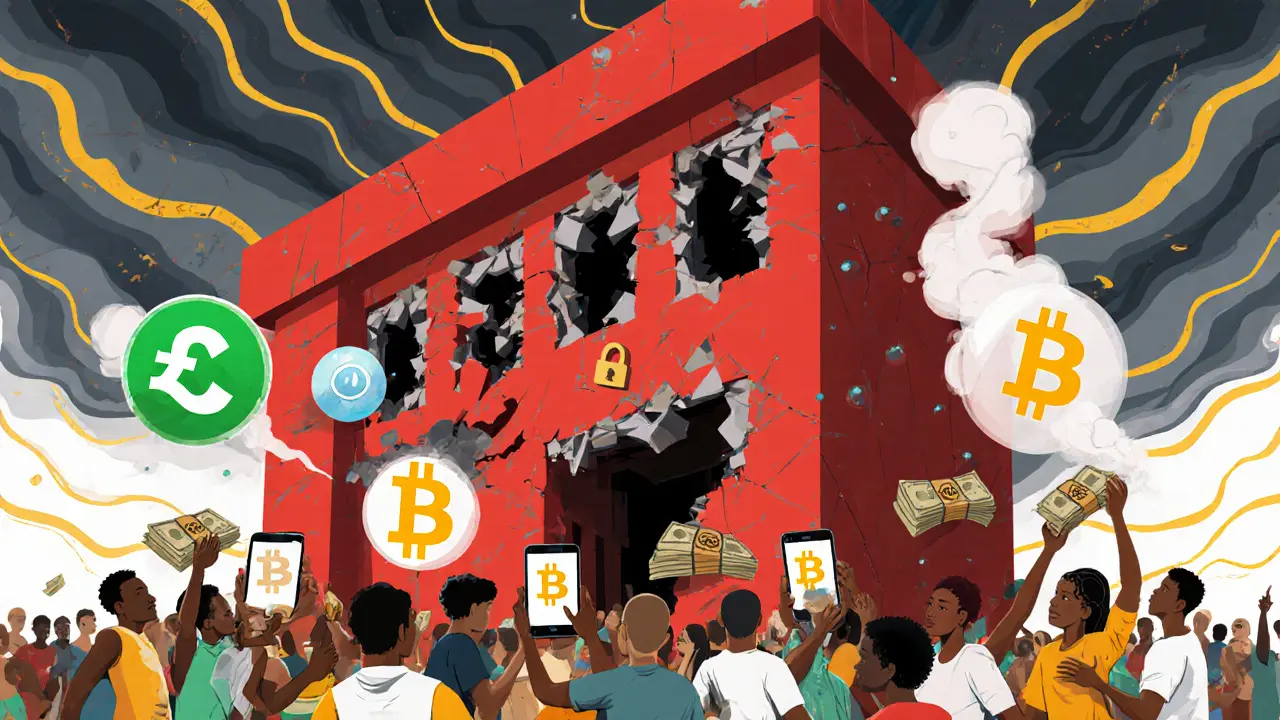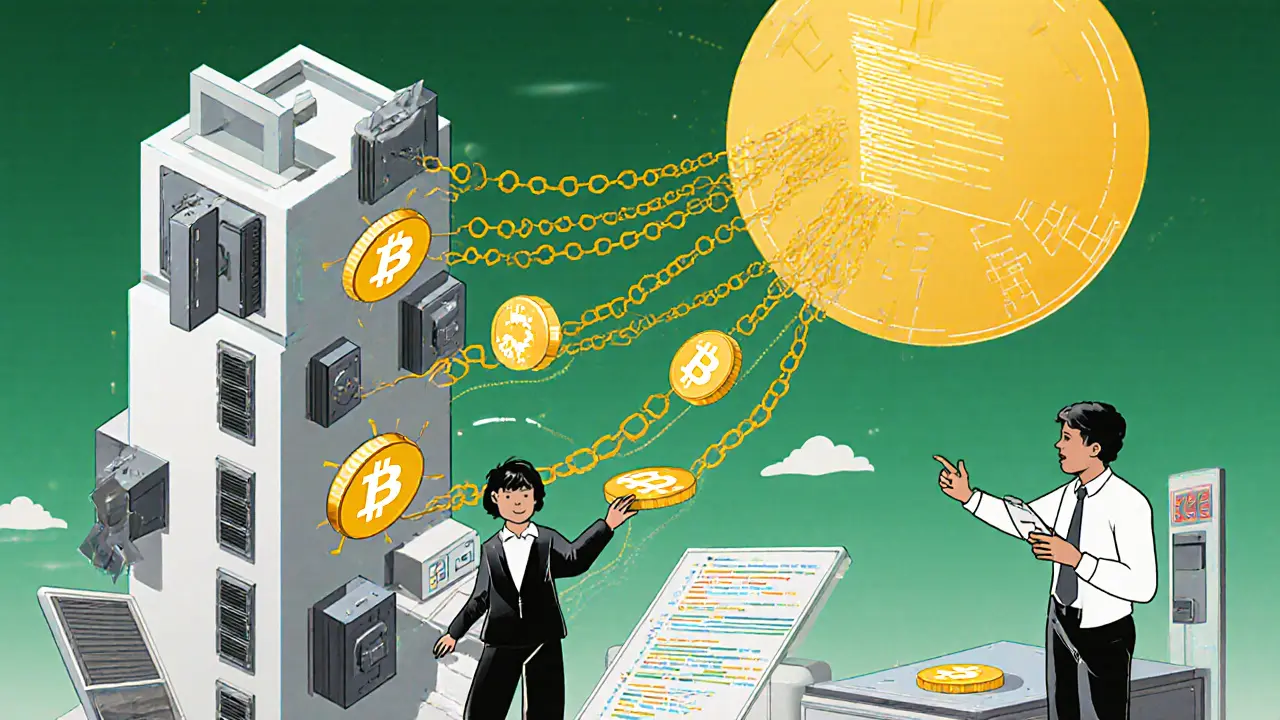Central Bank of Nigeria Crypto Policy Evolution: From Ban to Regulation
 Nov, 3 2025
Nov, 3 2025
Nigeria Crypto Policy Timeline
January 2017: CBN Circular Warning
CBN issued a circular advising banks to avoid cryptocurrency transactions. This wasn't a ban but a warning to financial institutions not to engage with crypto.
October 2020: #EndSARS Protests
During protests against police brutality, crypto became a lifeline for donations. Bitcoin and USDT donations bypassed traditional banking restrictions.
September 2020: SEC Securities Ruling
SEC declared some crypto assets to be securities, opening the door for regulation of certain tokens under existing financial laws.
February 2021: CBN Ban Letter
CBN ordered banks to close all cryptocurrency-related accounts. This crackdown forced traders to use peer-to-peer platforms and mobile money for transactions.
2022: CBN-SEC Joint Committee
CBN and SEC formed a joint committee to develop a regulatory framework for virtual assets, shifting from prohibition to oversight.
December 1, 2023: VASP Guidelines
CBN issued guidelines allowing licensed VASPs to operate. Banks could now open accounts for compliant crypto firms, marking the end of the ban.
Back in 2021, if you were caught trading Bitcoin in Nigeria using your bank account, your account could be shut down overnight. No warning. No appeal. Just locked. That was the reality under the Central Bank of Nigeria’s (CBN) strictest crypto rules. But by 2025, the same bank that once banned crypto transactions was now licensing crypto firms and letting them open bank accounts. This wasn’t a small tweak-it was a full reversal. And it tells a bigger story about how governments learn to live with technology they can’t stop.
The First Warning: 2017’s Circular
The CBN didn’t start with a ban. In January 2017, it dropped a circular telling banks and financial institutions: don’t touch crypto. No holding it. No processing payments for it. No opening accounts for crypto businesses. But here’s the key detail-this wasn’t a law. It didn’t make owning Bitcoin illegal for Nigerians. It just cut off the pipes. Banks were told to avoid crypto entirely, but individuals could still buy it on peer-to-peer platforms like LocalBitcoins or Paxful. The CBN’s move was a warning, not a war.
At the time, crypto was still a fringe thing in Nigeria. Few people understood it. But the message was clear: the government didn’t trust it. They feared money laundering. They worried about capital flight. And they didn’t want to lose control over the naira.
The Crackdown: 2021’s Letter
By February 2021, the CBN went from warning to warfare. It issued a new letter to all banks: close all accounts tied to crypto. This wasn’t just about not helping crypto firms anymore. It was about purging them from the financial system. If you ran a crypto exchange, your bank account was gone. If you bought crypto regularly, your account could be flagged and frozen. Even sending money to a crypto platform could trigger a review.
The impact was immediate. Crypto exchanges like Binance and OKX had to pull back. Some Nigerian traders lost access to their funds. But here’s what the CBN didn’t expect: people adapted.
With banks shut out, Nigerians turned to peer-to-peer (P2P) trading. They paid in cash. They used mobile money. They traded through WhatsApp and Telegram groups. The crypto market didn’t die-it went underground. And it grew. Nigeria became one of the top countries in the world for P2P Bitcoin trading, even as banks stood by, powerless to stop it.
The Protest Effect: When Crypto Became a Lifeline
In October 2020, during the #EndSARS protests against police brutality, the government froze bank accounts of activists and donors. That’s when crypto stepped in. People started receiving donations in Bitcoin and USDT. No bank could trace it. No regulator could block it. The protests kept going-not because of political will, but because crypto kept the money flowing.
The CBN saw this as a threat. Here was a technology that could bypass their control. But instead of cracking down harder, it started to ask: What if we can’t stop it-what if we should regulate it?

The Shift: SEC Steps In
While the CBN was focused on blocking crypto, the Securities and Exchange Commission (SEC) was watching from a different angle. In September 2020, the SEC said: Some crypto assets are securities. That meant if a token acted like a stock-offering profits from others’ efforts-it fell under their jurisdiction. This was a quiet but huge move. It created a legal path forward.
By 2022, the CBN and SEC started working together. They formed a joint committee to figure out how to regulate, not ban. The idea was simple: if you can’t stop crypto, make sure it follows the rules. Anti-money laundering checks. Know-your-customer rules. Transparent reporting. No more anonymous trading.
The Turning Point: December 2023 Guidelines
On December 1, 2023, the CBN dropped the VASP Guidelines. Virtual Asset Service Providers-crypto exchanges, wallets, trading platforms-could now legally operate in Nigeria, as long as they were licensed by the SEC. Banks were told: You can open accounts for them again.
This was the official end of the ban. Not because crypto disappeared. But because the CBN realized the ban had failed. People were still trading. Money was still moving. The only difference? Now it was all happening outside the system, with no oversight, no taxes, no accountability.
The new rules required VASPs to register with the SEC, submit detailed KYC records, and report suspicious transactions. The CBN kept its role in monitoring banking flows, while the SEC became the main watchdog for crypto businesses.

The New Rules: Licensed, Not Legalized
By 2025, Nigeria’s crypto scene looks completely different. You can’t just set up a crypto exchange and start taking deposits. You need a license from the SEC. You need to prove you have proper security, internal controls, and compliance staff. You need to report every transaction over $10,000.
Companies like Binance and OKX haven’t returned-not yet. But smaller Nigerian platforms like NairaEx and Bitmama have gotten licensed. They’re now operating openly. They’re using bank accounts. They’re paying taxes. And they’re attracting foreign investors who were scared off during the ban.
One big win? Nigeria’s position on the Financial Action Task Force’s Gray List. The country has been on it since 2019 for weak anti-money laundering controls. With the new crypto rules, regulators say Nigeria is on track to get removed in 2025. That’s a big deal for international finance.
Why the Change? Control Over Control
The CBN didn’t suddenly love crypto. They just realized they couldn’t control it by blocking it. The P2P market proved that. When you ban something people need, they find a way around it. And when they do, you lose all visibility.
Regulation gives the government back control. Now, they can track who’s trading, how much, and where the money goes. They can tax it. They can investigate fraud. They can stop criminals without shutting down the whole market.
It’s not perfect. Some traders still use unlicensed platforms. Some still send crypto through offshore wallets. But now, the government has tools to act-not just guess.
The Future: Nigeria as a Crypto Leader in Africa
Nigeria isn’t the only African country dealing with crypto. Ghana, Kenya, and South Africa are all figuring it out. But Nigeria’s shift is the most dramatic. It went from one of the strictest bans to one of the most structured regulatory frameworks in the region.
That’s not just good for crypto traders. It’s good for the economy. Young Nigerians are building crypto-based startups. Remittances are getting cheaper. Small businesses are accepting crypto payments. And foreign capital is starting to flow back in.
The CBN’s journey shows something important: when technology outpaces regulation, the smart move isn’t to fight it. It’s to frame it.